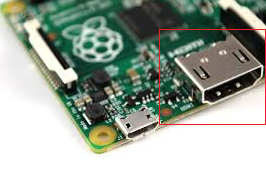
We know that the Raspberry-Pi requires an input voltage of 5V. We will now see how much current (and coincidentally power) the Raspberry-Pi draws under different load conditions. All the benchmarks will be taken from the PidRamble website. The boards are running stock Raspbian Lite, with no additional software installed and only running basic daemons. There are no additional peripherals connected to the Pi boards.
| Raspberry-Pi Model | Pi State | Power Consumption |
|---|---|---|
| Raspberry-Pi 3 B+ | Idle | 350 mA (1.9 W) |
| Raspberry-Pi 3 B+ | Maximum CPU Load | 980 mA (5.1 W) |
| Raspberry-Pi 3 B+ | Minimal CPU Load with HDMI & LEDs disabled | 350 mA (1.7 W) |
| Raspberry-Pi 3 B | Idle | 260 mA (1.4 W) |
| Raspberry-Pi 3 B | Maximum CPU Load | 730 mA (3.7 W) |
| Raspberry-Pi 3 B | Minimal CPU Load with HDMI & LEDs disabled | 230 mA (1.2 W) |
| Raspberry-Pi 2 B | Idle | 220 mA (1.1 W) |
| Raspberry-Pi 2 B | Maximum CPU Load | 400 mA (2.1 W) |
| Raspberry-Pi 2 B | Minimal CPU Load with HDMI & LEDs disabled | 200 mA (1.0 W) |
| Raspberry-Pi Zero | Idle | 80 mA (0.4 W) |
| Raspberry-Pi Zero | Maximum CPU Load | 240 mA (1.2 W) |
| Raspberry-Pi Zero | Minimal CPU Load | 40 mA (0.2 W) |
Note : All Raspberry-Pi models consume around 0.1W when powered off, until they are disconnected from their power source.